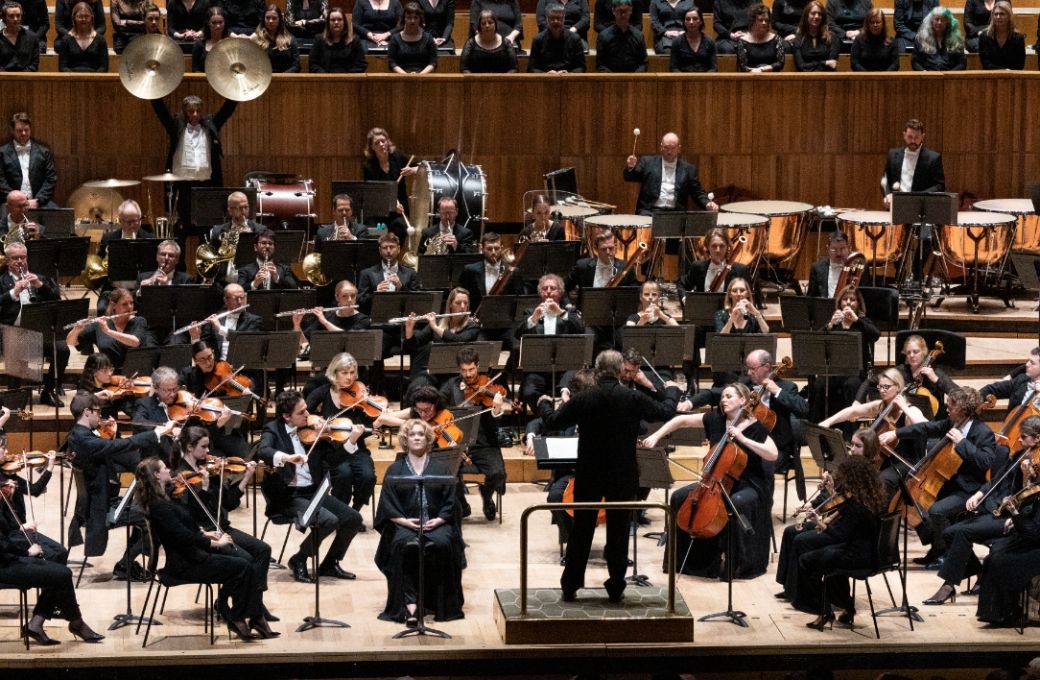This London Philharmonic Orchestra concert of Mahler’s Third Symphony was due to be conducted by Robin Ticciati, who was indisposed. With an army of amateur and professional musicians engaged and prepared, who could step in late, but not change the programme? Mahler Three needs some stage management, both literally with its choral forces and huge orchestra, and metaphorically with its 100-minute odyssey across six movements of such varied musical terrain. It also seems to be about something, though the composer struggled to articulate exactly what, except that Nature and Pan figure prominently. But there also a Menuetto (in Mahler?), a sung warning about the world’s deepness, and a choir singing of heavenly joy. So it really shouldn’t work (some Mahlerians still claim it doesn’t) and no conductor should take it on at the last minute.

Fortunately, no-one told Sir Mark Elder this, who stepped in – too late in the day for any insert in the programme book, but seemingly not too late for some rehearsal, to judge by the excellent performance. Thus one opera conductor gave way to another, to play music by one of the greatest of all opera conductors, so drama awaited us. Certainly dramatic force erupted at the outset, eight horns braying out ff to announce Mahler’s longest movement (a standard 35 minutes on this occasion). Its subsequent gurglings and eructations somehow became a compelling sonata structure as, according to an embryonic programme, “summer marched in”. The three solos from Principal Trombone Mark Templeton were quite outstanding, noble and freely phrased. Leader Alice Ivy-Pemberton too offered delightful solos throughout. Elder’s command of this movement led to one of those audience collective noises of appreciation, stifled by the belief it is wrong to applaud mid-symphony.
The second movement Tempo di Menuetto, hardly a real minuet (which would take us indoors, out of nature), had the charm that explained why it was once popular in its own right, and even arranged by Britten for small orchestra. Mahler asks for “a very moderate pace” and Elder was steady but still dance-like. The Scherzo too was as designated “without haste” and the LPO players, the woodwinds especially, relished the freedom that Elder afforded them. Paul Beniston's offstage posthorn solo was as eloquent as I have ever heard it, aided by a perfect location, distant enough to sound nostalgic, present enough to register properly.
The fourth movement could not maintain this level. Hardly the fault of Alice Coote, a mezzo-soprano asked to sing the very slow contralto song of Zarathustra’s warning, “Oh Man, take heed!”. I once considered founding an SPCV, (Society for the Preservation of the Contralto Voice), which foundered as soon as I wondered what an action programme could look like. So mezzo-sopranos can and often do sing here, but this still centre and heart of the work needs more than the notes. Coote sang with her familiar skill, agreeable in phrasing, diction and line. But where was the gravitas of this minatory utterance? The German word tief (“deep”) and its derivatives are heard eight times in these eleven lines, but the poem’s haunting significance went missing.
The angelic song of the fifth movement restored normal service, where Coote’s contribution was fine, as was that of the London Philharmonic Choir and Trinity Boys Choir. In the finale, as “slow, tranquil, deeply felt” as the score asks, Elder led the LPO on to a superb peroration, exactly 101 minutes after launching that opening fanfare. We can argue about exactly what it all means, but this performance was certainly full of meaning.


